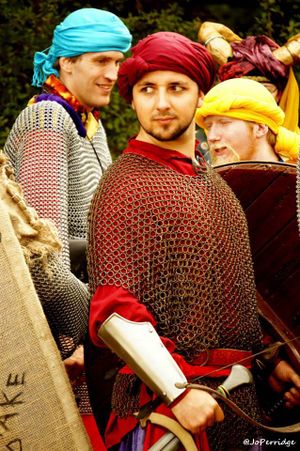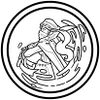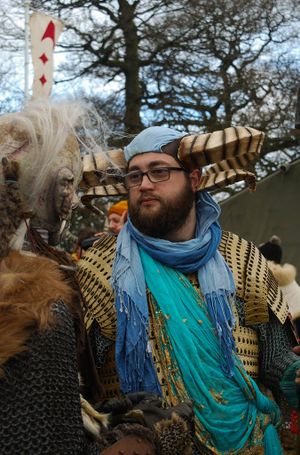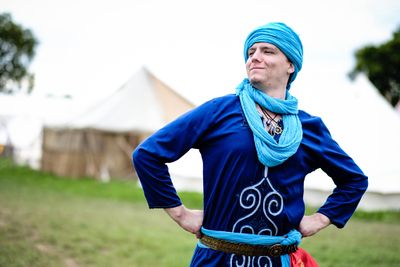The Brass Coast military concerns
m (With a Navy, the RWC being the closest to a naval force is a thing of the past.) |
|||
| Line 24: | Line 24: | ||
This first [[Imperial navy]] since the reign of [[Emperor Barabbas]] was constructed at the [[Madruga#The_Atalaya_Shipyards|Atalaya Shipways]] in [[Madruga]] over the course of 379YE. Enthusiasm for constructing the navy peaked during the [[The_Glorious_Advance|celebrations]] surrounding the Imperial victory over the Lasambrian [[orc|orcs]] in [[Segura]], and the [[Imperial Synod]] capitalised on that enthusiasm to provide additional support to the project. The navy launched for the first time just before the Winter solstice 379YE. | This first [[Imperial navy]] since the reign of [[Emperor Barabbas]] was constructed at the [[Madruga#The_Atalaya_Shipyards|Atalaya Shipways]] in [[Madruga]] over the course of 379YE. Enthusiasm for constructing the navy peaked during the [[The_Glorious_Advance|celebrations]] surrounding the Imperial victory over the Lasambrian [[orc|orcs]] in [[Segura]], and the [[Imperial Synod]] capitalised on that enthusiasm to provide additional support to the project. The navy launched for the first time just before the Winter solstice 379YE. | ||
The admiral of the Freeborn Storm is appointed (or reappointed) during the Winter Solstice each year. | The [[General#Admiral|admiral]] of the Freeborn Storm is appointed (or reappointed) during the Winter Solstice each year. | ||
<row-fluid> | <row-fluid> | ||
Revision as of 14:33, 4 June 2016
While the Freeborn nation supports two Imperial armies, organized along traditional lines, most Freeborn families encourage their children to practise some martial skills. The Freeborn remember a time when the families were responsible for their own defence and they try to remain prepared in case that day should come again. Those Freeborn who are not career soldiers are by day traders, farmers and labourers, only turning to martial matters when required, though all are ready to do so.
Many families maintain a small dedicated fighting force, usually family members who have shown a capacity for martial excellence. These warriors protect Freeborn caravans and settlements from bands of raiding orcs or adventurous bandits. Families take pride in equipping their warriors with the best equipment they can afford. These family warriors often train to fight in heavy armour in close formation.
Kohan
Centuries ago, the hakima began to gather Freeborn who had been disowned and turned them into a fighting force. By serving their tribe the Freeborn were able to find a way to redeem themselves. These groups were called kohan, meaning without family, and their number has grown considerably over the years. Although they still accept those who have been cast out, most kohan are volunteers, individuals who find such joy in battle that they cannot give it up. They fight for the joy of battle, flinging themselves into combat with a blood-thirsty relish that can easily dispirit an enemy. Kohan often adopt flamboyant costume and grotesque body paint, the better to unnerve their enemies. When they are not fighting they are usually found celebrating their continued survival with that same intensity.
Groups of kohan usually form loose bands of soldiers who live and fight together, the group serving as a surrogate for the family they have left behind. Groups of kohan are driven by very different reasons but the traditional ones pledge their service directly to a group of hakima. They regard this devotion as a higher calling and see their path as a spiritual one. A “family” of kohan is generally quite loose, and its membership fluid. Indeed, members may come from any of the three tribes, laying aside tribal rivalries for as long as they are part of a kohan band. Kohan who cannot fight due to pregnancy or injury generally return to their birth family either until they are ready to fight again, and sometimes kohan choose to rejoin their original family permanently.
Imperial Armies
The Brass Coast currently fields two imperial armies; the Red Wind Corsairs and the Fire of the South.
The Red Wind Corsairs
The core of this army is made up of corsairs and has been the closest the Empire had to a naval force for centuries. Many of the soldiers who serve with this army have experience serving as sailors, and the force is supported by a number of boats and ships. The army often takes advantage of this to reinforce and support difficult positions, or move quickly to areas where it can do the most good. The experienced privateers who often serve as officers excel at foraging for supplies in enemy territories, and a portion of the booty they acquire is tithed to the general of the army. The first Brass Coast General leads the Red Wind Corsairs, and is appointed (or re-appointed) at the Summer solstice each year.
The Fire of the South
The soldiers of this army are trained in tactics appropriate to flat, open land. Often recognised by their brightly polished armour, their warriors and supply lines are trained to be especially mobile and responsive to attacks from any direction. This gives them a marked advantage over less adaptive armies, allowing them to cover great distances very quickly. The second Brass Coast General leads the Fire of the South, and is appointed (or re-appointed) at the Autumn equinox each year.
The Freeborn Storm
This first Imperial navy since the reign of Emperor Barabbas was constructed at the Atalaya Shipways in Madruga over the course of 379YE. Enthusiasm for constructing the navy peaked during the celebrations surrounding the Imperial victory over the Lasambrian orcs in Segura, and the Imperial Synod capitalised on that enthusiasm to provide additional support to the project. The navy launched for the first time just before the Winter solstice 379YE.
The admiral of the Freeborn Storm is appointed (or reappointed) during the Winter Solstice each year.





